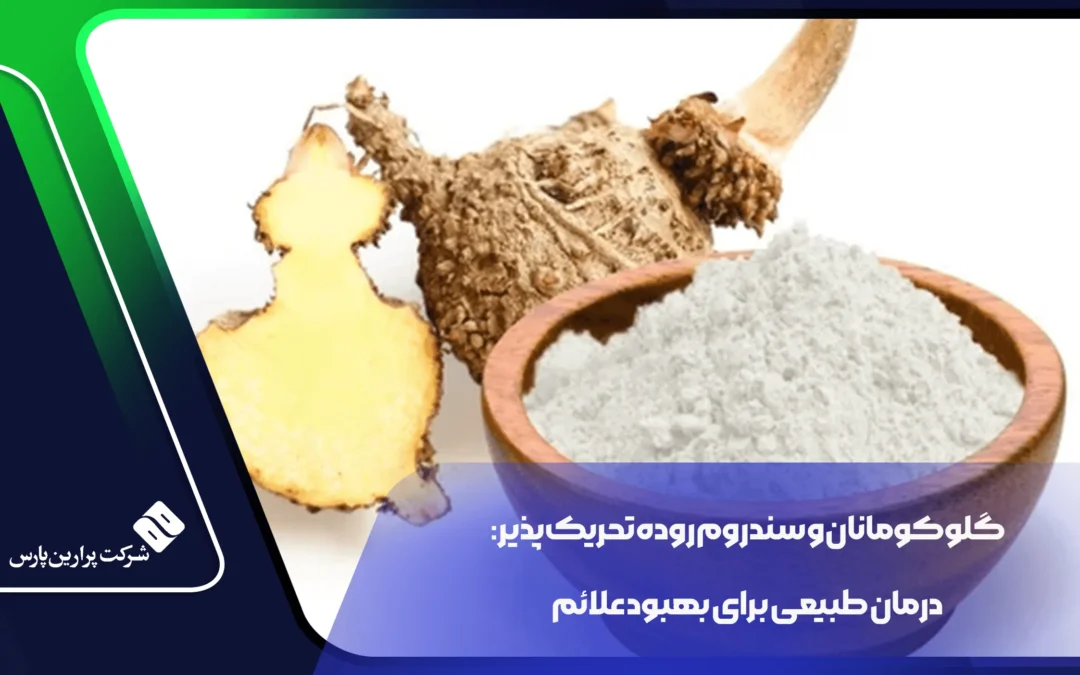Glucomannan is a natural fiber extracted from the root of the konjac plant (Amorphophallus konjac), which is native to East Asia, particularly used in Japan and China. It is recognized as a dietary supplement that has gained significant attention due to its numerous health benefits. One of the key aspects of glucomannan that has drawn interest is its potential role in managing symptoms of Irritable Bowel Syndrome (IBS).
IBS is a common digestive disorder characterized by symptoms such as bloating, constipation, and abdominal pain, which can significantly impact an individual’s quality of life. This article explores the relationship between glucomannan and IBS, analyzing how this natural fiber may help improve the well-being of IBS patients.
Glucomannan: A Unique Soluble Fiber
Glucomannan is a natural polysaccharide derived from the root of the konjac plant (Amorphophallus konjac). It is commonly used in dietary supplements as a soluble fiber and is particularly valued for its ability to absorb large amounts of water and form a gel-like substance in the stomach. This property can have various effects on the digestive system.
Irritable Bowel Syndrome (IBS)
IBS is a functional gastrointestinal disorder that commonly affects the digestive tract. Symptoms include abdominal pain, changes in bowel habits (diarrhea, constipation, or both), and bloating. The exact cause of IBS remains unclear, but multiple factors, including stress, altered gut motility, mild inflammation, and changes in gut microbiota, may contribute to its development.
The Connection Between Glucomannan and IBS
Soluble fibers like glucomannan, due to their water-absorbing and gel-forming properties, may have positive effects on digestive health. There are several reasons why glucomannan may be beneficial in managing IBS:
1. Improving Bowel Movements
By absorbing water and increasing the bulk of stool, glucomannan can help improve bowel movements. This is particularly beneficial for individuals suffering from IBS-related constipation. Studies have shown that glucomannan can soften stool and facilitate its passage through the intestines.
2. Reducing Bloating and Gas
Bloating and excessive gas are common IBS symptoms. Glucomannan may help alleviate bloating by improving bowel motility and reducing the accumulation of gas in the intestines, thus minimizing discomfort and abdominal pain.
3. Reducing Intestinal Inflammation
Glucomannan may have anti-inflammatory properties that help reduce mild gut inflammation, which is present in many IBS patients. This anti-inflammatory effect can contribute to symptom relief and overall gut health improvement.
4. Regulating Blood Sugar and Metabolic Effects
Some IBS patients experience metabolic issues such as insulin resistance and blood sugar fluctuations. Glucomannan, by slowing carbohydrate absorption and helping regulate blood sugar levels, may be particularly beneficial for IBS patients who also have type 2 diabetes.
Studies and Research on Glucomannan and IBS
In recent years, several studies have investigated the effects of glucomannan on IBS:
- A 2010 study published in Alimentary Pharmacology & Therapeutics found that glucomannan supplementation helped reduce digestive symptoms such as bloating, constipation, and diarrhea in IBS patients. The study reported significant symptom improvements within a short period.
- A 2015 study published in World Journal of Gastroenterology indicated that glucomannan fiber could reduce IBS symptom severity in patients suffering from constipation. Participants showed noticeable improvements in bowel movements and decreased abdominal pain after taking glucomannan.
- A 2019 study published in Journal of Clinical Gastroenterology demonstrated that glucomannan supplementation could reduce bloating and abdominal fullness in IBS patients. Additionally, the study suggested that glucomannan might have anti-inflammatory effects that help alleviate IBS-related symptoms.
Practical Considerations and Dosage of Glucomannan
Although glucomannan appears to be a natural and effective remedy for IBS, it should be consumed carefully and under medical supervision.
- Recommended Dosage: The typical dosage for adults is 1–2 grams before meals, three times a day. However, individual needs may vary.
- Water Intake: It is crucial to drink plenty of water when taking glucomannan, as insufficient water intake may lead to digestive blockages.
- Potential Side Effects: Overconsumption of glucomannan may cause bloating, abdominal discomfort, and diarrhea.
Side Effects and Precautions
While glucomannan is generally safe for most people, some individuals may experience mild side effects, including bloating, gas, and stomach discomfort. Additionally, those taking medications such as diabetes drugs or blood thinners should consult their healthcare provider before using glucomannan, as it may interfere with drug absorption.
Conclusion
As a natural soluble fiber, glucomannan has shown promising potential in alleviating IBS symptoms. Its unique properties—such as water absorption and stool bulking—can help improve bowel movements, reduce bloating, relieve abdominal pain, and even regulate blood sugar levels. However, glucomannan should be used under medical guidance to avoid adverse effects.
Currently, research on glucomannan as a dietary supplement for IBS management is ongoing, but existing scientific evidence suggests that it may serve as a valuable, non-pharmaceutical option for managing this digestive disorder.

